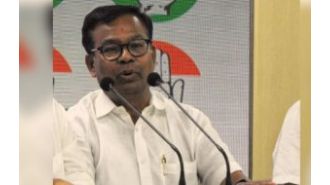SC executes Moore despite plea to reduce sentence to life - broad support for pardon ignored.
South Carolina executed Richard Moore by lethal injection for a 1999 shooting.

In Columbia, South Carolina, Richard Moore was put to death on Friday through lethal injection for the murder of a convenience store clerk in 1999. Despite numerous pleas for mercy from various individuals, including three jurors and the judge from his trial, a former prison director, pastors, and even members of his own family, Moore was pronounced dead at 6:24 p.m.
Moore had been convicted of killing James Mahoney, a clerk in Spartanburg, and was sentenced to death two years later. The incident occurred when Moore entered the store unarmed, only to take a gun from the victim when it was pointed at him. In the struggle that ensued, Moore fatally shot Mahoney in the chest as the victim shot back at him with a second gun, injuring Moore in the arm.
In an attempt to spare his life, Moore's lawyers had asked Republican Governor Henry McMaster to reduce his sentence to life in prison without parole, highlighting his spotless prison record and his willingness to be a mentor to other inmates. They also argued that it would be unjust to execute someone for what could be considered self-defense, and that it was unfair for Moore, who was Black, to be the only inmate on death row in the state who had been convicted by an all-white jury.
However, Governor McMaster refused to grant clemency, although he did not give a reason for his decision. In a letter, he stated that he had reviewed all the evidence submitted by Moore's lawyers and had spoken to the victim's family. It is worth noting that no South Carolina governor has ever reduced a death sentence, and this execution marks the 45th one carried out in the state since the U.S. Supreme Court allowed states to resume capital punishment almost 50 years ago.
Unlike in previous executions, the curtains to the death chamber were open when media witnesses arrived. Moore's last words had already been read by his lawyer of 10 years, Lindsey Vann. With his eyes closed and his head pointed towards the ceiling, Moore took several deep breaths that sounded like snores over the next minute. Eventually, his breathing stopped at around 6:04 p.m., and he showed no signs of discomfort.
During this process, Vann cried, clutching a prayer bracelet with a cross, while a spiritual advisor sat beside her with his hands on his knees, palms up. Two members of the victim's family were also present, along with Solicitor Barry Barnette, who was part of the prosecution team that convicted Moore. They all watched stoically as the execution was carried out.
Afterward, prison spokeswoman Chrysti Shain read Moore's last words at a news conference. He said, "To the family of Mr. James Mahoney, I am deeply sorry for the pain and sorrow I caused you all. To my children and granddaughters, I love you and am so proud of you. Thank you for the joy you have brought to my life. To all of my family and friends, new and old, thank you for your love and support."
Moore's final meal consisted of medium-cooked steak, fried catfish and shrimp, scalloped potatoes, green peas, broccoli with cheese, sweet potato pie, German chocolate cake, and grape juice.
Interestingly, three jurors who had condemned Moore to death in 2001, one of whom wrote a letter on Friday, had asked Governor McMaster to change his sentence to life without parole. They were joined by a former state prison director, Moore's trial judge, his son and daughter, a half-dozen childhood friends, and several pastors. They all vouched for Moore's character, stating that he was a changed man who loved God, adored his new grandchildren, helped maintain peace within the prison, and mentored other inmates.
According to Moore's lawyers, his original attorneys had not thoroughly examined the crime scene and had not challenged the prosecution's claims that Moore had entered the store with the intention to rob and had fired at a customer. They claimed that the argument between Moore and Mahoney had started because Moore was 12 cents short for the item he wanted to buy, and the clerk had pulled a gun on him. In the struggle that followed, Moore managed to take the gun from Mahoney's hand, who then pulled out a second weapon. Moore was shot in the arm and retaliated by firing back, accidentally killing Mahoney. After the shooting, Moore went behind the counter and stole about $1,400.
His current attorneys also argued that Moore's trial had not been fair since there were no African Americans on the jury, even though 20% of the population in Spartanburg County was Black. They emphasized that no other inmate on death row in South Carolina had started their crime unarmed and with no intention to kill.
Jon Ozmint, a former prosecutor who was also the director of the South Carolina Department of Corrections from 2003 to 2011, was among those who had appealed for clemency. He stated that Moore's case was not the worst-of-the-worst type of crime that would typically warrant a death sentence. Ozmint added that there were numerous other individuals who had committed far more heinous crimes but had not been sentenced to death, such as Todd Kohlhepp, who had been given a life sentence for killing seven people, including a woman whom he had raped and tortured for days.
Moore's lawyers also criticized the state's death penalty system, citing it as flawed and haphazard. They argued that the decision of who gets executed and who is allowed to live out their lives in prison seemed to be based on nothing more than chance, race, or status. In their statement, Justice 360, the law firm representing Moore, stated, "By killing Richard, the state also created more victims. Richard's children are now fatherless, and his grandchildren will have to grow up without their 'Pa Pa'."
In the past, Mahoney's relatives and prosecutors have not spoken publicly about the case, and they did not do so in the weeks leading up to the execution. However, family members had previously expressed their deep suffering and desire to see justice served.
It is worth noting that Moore's execution was postponed twice before, as the state struggled with various issues that had caused a 13-year pause in capital punishment, including pharmaceutical companies' refusal to provide the state with lethal injection drugs. This hurdle was eventually overcome by passing a secrecy law.
Moore is the second inmate to be executed in South Carolina since the state resumed capital punishment, and four more individuals are awaiting execution without any further appeals. The state is expected to carry out these executions in five-week intervals throughout the spring. Currently, there are 30 people on death row in South Carolina.
Governor McMaster had stated before the execution that he would carefully review all the evidence presented by Moore's lawyers and would announce his decision at the last minute, after all appeals had been exhausted. In a statement to reporters, he said, "Clemency is a matter of grace, a matter of mercy. There is no standard. There is no real law on it."










